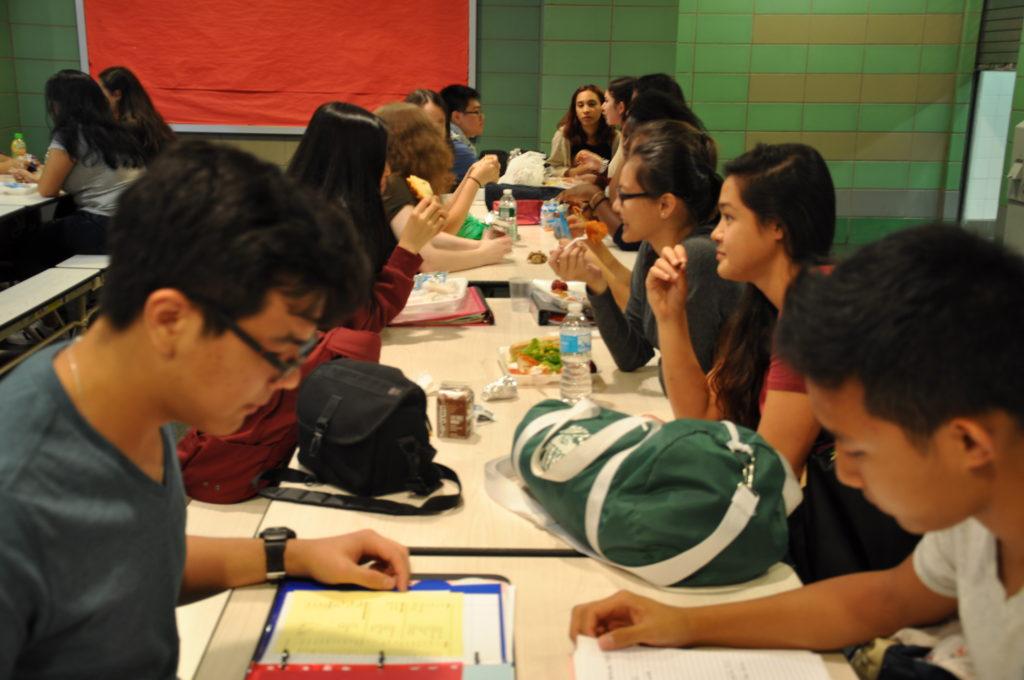
To the uninitiated, the world of gaming may seem as small and dated as the oft-forgotten Nintendo GameCube. However, it is a world that is quickly expanding, as evidenced by the countless Hollywood adaptations resting in the pipeline, the first U.S. gaming arena currently under construction in Ohio, and the fact that the video game streaming service Twitch boasted more than 45 million monthly viewers in 2013. One of the biggest names in online video games is League of Legends. Just as aspects of popular culture can quickly take hold in people’s lives, the game has found itself embedded within the video game subculture at Townsend Harris.
League of Legends, often abbreviated as LoL, has grown to be one of the most popular features of the online gaming world. Just this year, Riot Games, League’s publisher, claimed that the game attracted roughly 67 million players per month.
In the game, players compete as one of hundreds of “champion” avatars to destroy the adversary’s core. Each champion has their own set of skills, and players can compete in teams or on their own to advance in the game. With around seven moves unique to each champion, players rely on strategy and teamwork to win.
The gaming scene has made its way to THHS as well. Facebook pages and chats created by our students orchestrate the team champion picks of the day. Tournaments involving prize money hosted by average NYC students are also created through the social networking site as well, getting kids from all over the city to battle.
If you couldn’t tell already, students take this game seriously. And sometimes, even personally. THHS students devote many hours of their school days increasing their rank and status, some even reporting a lack of sleep due to this.
Senior Stanley Li, ranked platinum (top 1.5% of the nation), said, “Honestly speaking, although League is extremely fun, it is also very time-consuming and that might not attribute well with your academics.”
Even freshman Nancy Jiang, a silver player, says, “The game is the best thing and the worst thing to have happened to me. I love it. But it’s been single handedly ruining my social life and school work. The thing that compels me to continue playing is the feeling you get after winning an hour long game and the strategy and teamwork involved.”
Nancy also clears up some preconceived notions of League, by saying “how nice people can be despite our community being labeled as toxic. A lot of the people who play League are beyond nice. But it’s true in the gaming world many people flame each other and tell them to die when they’re doing badly. Of course, that’s unacceptable, but it’s not surprising because League evokes so much emotion in a person. I never used to rage at all until I started playing League. It can bring out the worst in a person. But that’s the best part about League: we need to work on overlooking all the negative aspects of what’s happening in the game and just focus on working together.”
Students part of the Facebook THHS League group, called “Hawks On League,” share their perspectives as well. Junior Max Lacoma jokingly puts he plays League “when he has a lot of homework he doesn’t want to do.” He continues on a more serious note, “I like how we can post pictures and talk about league without being judged by other people for playing video games, and we can organize and talk about things easier.”
Senior David Chen adds on, “This group exists so we can share our achievements with each other and also partner up if we want to complain about stuff in the game.” These social-networking based group-work exist to fit the needs of these busy high schoolers.
One may even confuse the rank and status of their online persona with the actual ones that live in front of the screen. Often times, players judge profiles of other gamer students based on their skill level: bronze, being top 25% of the nation, and diamond being top .1%, either looking up with admiration or looking down with superiority. Students from highly competitive schools are willing to sacrifice much of their time and energy to gain the respect the titles hold.
The purpose of devoting so much effort to this online game varies, as motivations may range from achieving personal contentment, self-assurance and happiness, to, as David, a Platinum Player, jokingly puts it, “Girls dig highly ranked League of Legends players, a.k.a. me.”
Emphasizing the size and weight of this project, LoL has now officially become a universal eSport. Professional gamers can get paid up to $500,000 a year, some earning even more through sponsorships. This offers hope to players that maybe some day they can make a living just by playing their favorite game.
As with many sports competitions, the recent League of Legends 2014 World Championship has been taking place in regions of Asia, having participants from all over the globe fighting for the two-million-dollar prize. Millions of North American teenagers wake up at the crack of dawn to watch the streaming of the games that are occurring in a different time zone.
Given that LoL is a game that brings students from all backgrounds to participate in competitions that require such a varied skill set, it’s no wonder that THHS students find it to be an adequate antidote to the social media-focused hubs that teenagers traditionally spend their time occupying.































David Chen • Dec 2, 2014 at 2:05 pm
Lucy, this was beautifully written… great job!